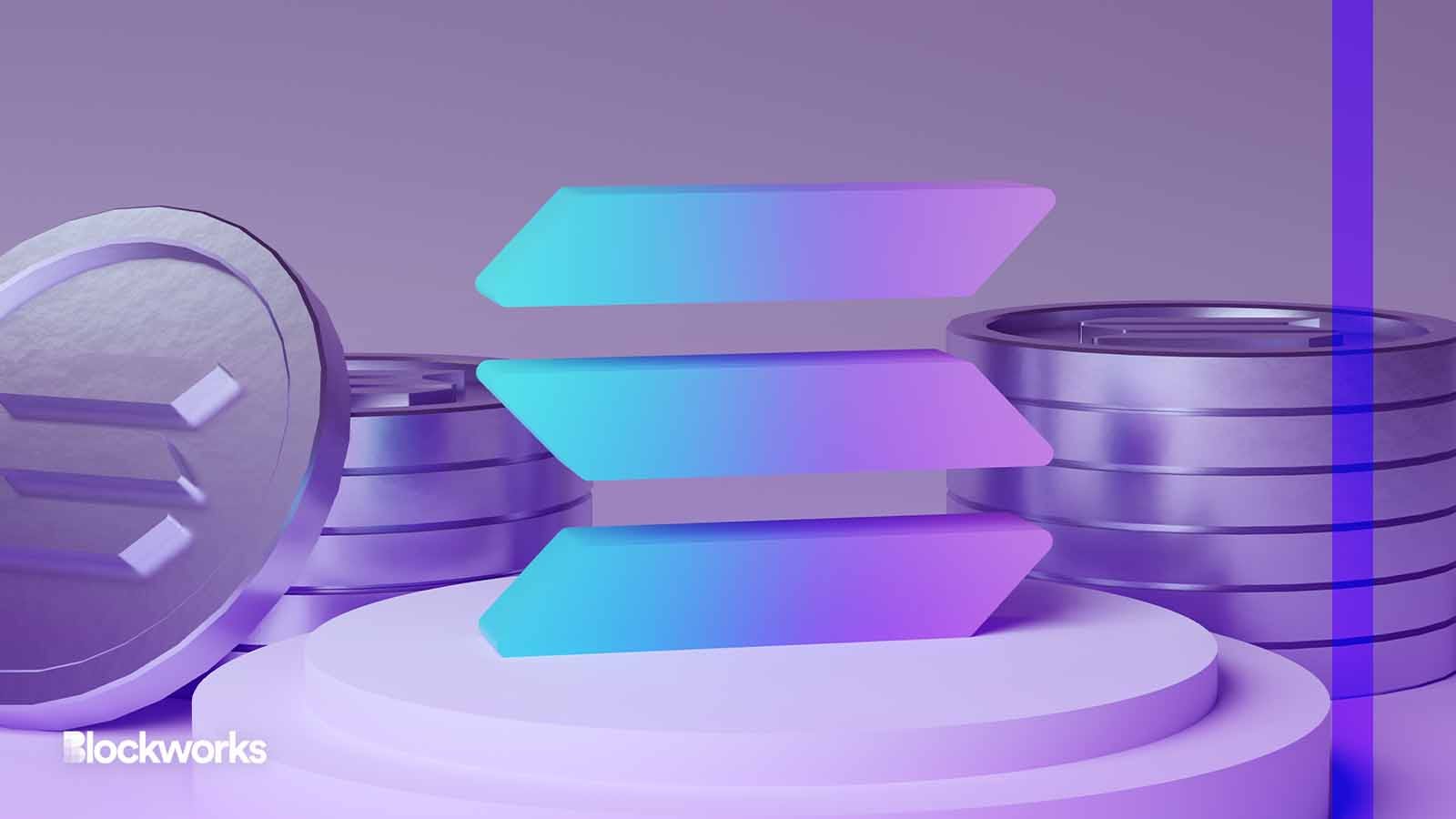Will Solana’s Metaplex Fees Push Developers Back to Ethereum?
Following community backlash, Metaplex promptly back-pedaled from initial plans, removing some, but not all of the proposed fees

Shizume/Shutterstock modified by Blockworks
One of the biggest selling points of Solana’s ecosystem is its low cost of utility for NFTs, especially when compared to its gas guzzling rival, Ethereum.
But even on the svelte blockchain platform, development still requires funding.
In an effort to cover some of these costs, dominant Solana NFT protocol Metaplex introduced a controversial network fee in its “Token Metadata immutability plan,” resulting in angry calls for forks and general discontent among its community.
Following the backlash, Metaplex promptly back-pedaled from initial plans, removing some, but not all of the proposed fees. The company stated via Twitter that updates, verifications, freezes and thaws would remain free as costs “could prohibit important and emergent use cases.”
Co-hosts Garrett Harper and Santiago Santos discussed the fee furor and the possibility that it might draw some developers back to Ethereum in a Blockworks interview on the Empire podcast.
Metaplex as a public good
Harper notes that Metaplex “spun out of Solana Labs,” raising $46 million, which he estimates is the third-largest raise in Solana’s ecosystem from an individual project.
“I think people thought, in general, this was gonna be a public good.”
Virtually all Solana NFTs — around 99.9% according to a company blog post — adopted the Metaplex standard, Harper says, “but the issue is now that they’re adding fees on top of this, people are like, okay, we’re gonna have to fork this.”
Problem being, that’s not really a feasible solution, Harper explains. “They have a license where it says it’s open source, but you can’t actually fork it” to alleviate the fee problem.
Stephen Hess, the CEO of Metaplex, previously told Blockworks that “it’s acceptable under the license for anyone to fork Metaplex programs even for a competitive use case, provided the fork isn’t removing, replacing or modifying the fees.”
“Now it’s used by all these NFTs. It’s adopted by the exchanges and also wallets,” Harper says.
“It’s actually a lot of work to build and maintain the code,” he says, suggesting the company needs at least some fees to sustain a viable business model.
In a follow-up tweet, the company explains that proceeds from creator fees “will be used to fund dev work on the Token Metadata immutability roadmap as well as the broader suite of Metaplex programs (Candy Machine, Auction House, Compressed NFTs) and dev tools (SDKs, Amman, Umi, Solita).”
Will fees hinder development?
Harper explains that one of the problems for Solana, when compared to Ethereum, is that it lacks protocol standards like ERC-20 and ERC-721. “So today, the program’s just set by Metaplex and that’s what’s become the standard.”
Santos wonders if the fee introduction might hinder NFT development on the competing platform. Such a move, he says, “degrades the interest in the broader Solana ecosystem of onboarding users.”
“But at the same time, public goods need to be funded in some capacity.”
“You’re adding the taxation layer on top of it,” Santos says, which “adds another layer of difficulty when you’re trying to tell projects and users that they’re gonna be taxed for something that they’re usually not used to being taxed on in other ecosystems like Ethereum.”
“It becomes an even greater problem of competition and really low barriers to entry,” he says. “If you’re a new NFT project, this actually changes the landscape of it.”
“One of the cool things about Solana,” Santos observes, is that “they do move so fast, and that’s one of their core advantages. But you can see an issue in scenarios like this where that can actually be a bad thing.”
While Ethereum’s mainnet development moves at a much slower pace than Solana’s, layer-2 developments offer low-cost and rapidly evolving solutions, which “allows Ethereum to still innovate in a very quick way without having to do that at the protocol level,” Santos says.
“And with that, you’re not gonna have issues with this.”
Get the news in your inbox. Explore Blockworks newsletters:
- The Breakdown: Decoding crypto and the markets. Daily.
- Empire: Crypto news and analysis to start your day.
- Forward Guidance: The intersection of crypto, macro and policy.
- 0xResearch: Alpha directly in your inbox.
- Lightspeed: All things Solana.
- The Drop: Apps, games, memes and more.
- Supply Shock: Bitcoin, bitcoin, bitcoin.






